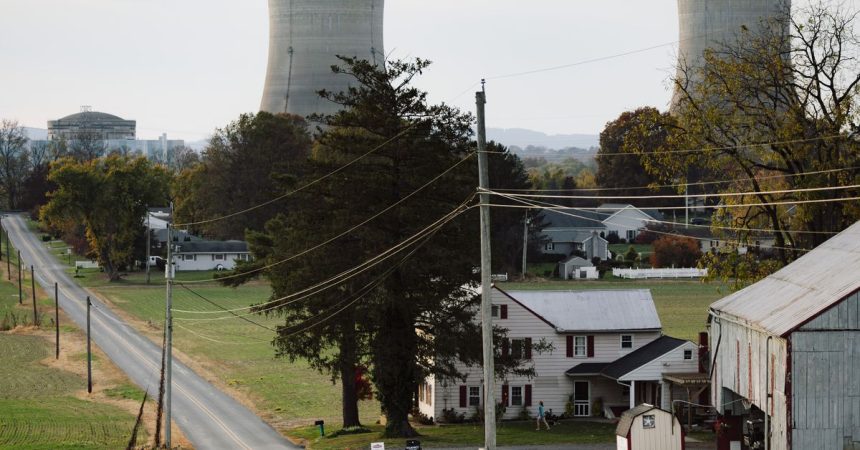The General Services Administration (GSA), the agency responsible for managing federal government buildings, has awarded a landmark $840 million contract to Constellation, the nation’s largest nuclear energy provider. Spanning ten years, the agreement encompasses 10 million megawatt-hours of electricity, enough to power over a million homes annually. This procurement represents a significant victory for the nuclear energy industry, reaffirming its role in the clean energy transition and signaling a shift in governmental and corporate attitudes towards this power source. The contract’s magnitude is underlined by the fact that it’s the largest energy procurement in GSA history and that the federal government is the biggest energy consumer in the country.
A significant portion of the contracted electricity, approximately 4 million megawatt-hours, will be sourced from nuclear power plants. This move aligns with the growing trend in Silicon Valley, where tech giants like Google, Meta, Amazon, and Microsoft are increasingly relying on nuclear energy to meet the escalating energy demands of their data centers and AI infrastructure. This surge in demand, coupled with limited clean energy sources, has created competition in the market, making the GSA’s fixed-price contract a strategic move to ensure budgetary stability and protect against future price hikes for federal agencies.
The contract carries broader implications beyond simply powering government buildings. It will enable Constellation to extend the licenses of existing nuclear power plants and invest in new equipment and technology, resulting in an additional 135 megawatts of capacity. The GSA has committed to purchasing 2.4 million megawatt-hours of electricity from this added capacity over the contract’s duration. Moreover, the agreement extends beyond GSA buildings to encompass 13 other federal agencies, including the Departments of Veterans Affairs and Transportation, the Federal Bureau of Prisons, the National Park Service, the Social Security Administration, and the US Mint.
The resurgence of nuclear energy as a viable clean energy source is reflected in both government and private sector initiatives. The Biden administration has prioritized nuclear energy as part of its decarbonization strategy, evidenced by a substantial loan from the Department of Energy to restart a retired nuclear plant in Michigan. While Constellation generates a majority of its electricity from nuclear power, it also utilizes other sources like hydro, wind, solar, and gas. However, the company has pledged to achieve 100% carbon-free electricity generation by 2040, up from its current near-90% level. The specifics of the energy mix in the GSA contract, beyond the nuclear component, remain undisclosed.
Constellation CEO Joe Dominguez emphasized the changing landscape for nuclear energy, highlighting its previous exclusion from many corporate and government sustainability initiatives. This contract, along with agreements with companies like Microsoft, signifies a renewed acceptance of nuclear power’s role in a carbon-free future. The deal specifically allows Constellation to reinvest in and extend the life of its existing nuclear assets, ensuring a reliable and cost-competitive supply of clean energy. This shift in perspective comes at a critical juncture, as increasing energy demands, particularly from data centers and AI facilities, necessitate reliable and sustainable energy solutions.
This GSA contract underscores a pivotal moment in the energy sector. It highlights the growing recognition of nuclear energy’s contribution to a sustainable energy future, driven by factors such as increasing energy demands, the need for reliable and cost-competitive power sources, and a broader acceptance of nuclear power within corporate and governmental sustainability strategies. The contract stands as a testament to the changing dynamics of the energy landscape, where nuclear energy is stepping back into the forefront as a vital component in the transition to a cleaner energy future. This is further underscored by the parallel actions of major tech companies investing heavily in nuclear energy to offset their own growing carbon footprint and ensure the reliability of their operations.



